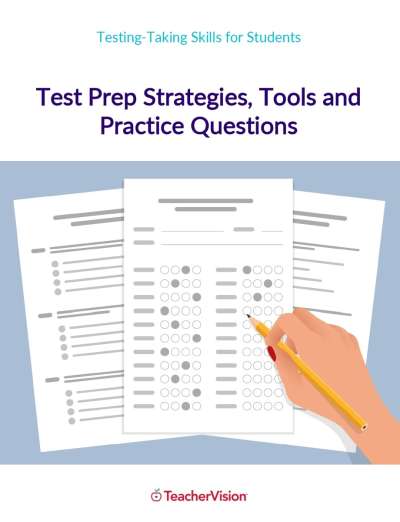Review this timeline of terrorist attacks within the United States or against Americans abroad.
(within the United States or against Americans abroad)
- 1920
- Sept. 16, New York City: TNT bomb planted in unattended horse-drawn wagon exploded on Wall Street opposite House of Morgan, killing 35 people and injuring hundreds more. Bolshevist or anarchist terrorists believed responsible, but crime never solved.
- 1975
- Jan. 24, New York City: bomb set off in historic Fraunces Tavern killed 4 and injured more than 50 people. Puerto Rican nationalist group (FALN) claimed responsibility, and police tied 13 other bombings to the group.
- 1979
- Nov. 4, Tehran, Iran: Iranian radical students seized the U.S. embassy, taking 66 hostages. 14 were later released. The remaining 52 were freed after 444 days on the day of President Reagan's inauguration.
- 1982–1991
- Lebanon: Thirty US and other Western hostages kidnapped in Lebanon by Hezbollah. Some were killed, some died in captivity, and some were eventually released. Terry Anderson was held for 2,454 days.
- 1983
- April 18, Beirut, Lebanon: U.S. embassy destroyed in suicide car-bomb attack; 63 dead, including 17 Americans. The Islamic Jihad claimed responsibility.
- Oct. 23, Beirut, Lebanon: Shiite suicide bombers exploded truck near U.S. military barracks at Beirut airport, killing 241 marines. Minutes later a second bomb killed 58 French paratroopers in their barracks in West Beirut.
- Dec. 12, Kuwait City, Kuwait: Shiite truck bombers attacked the U.S. embassy and other targets, killing 5 and injuring 80.
- 1984
- Sept. 20, east Beirut, Lebanon: truck bomb exploded outside the U.S. embassy annex, killing 24, including 2 U.S. military.
- Dec. 3, Beirut, Lebanon: Kuwait Airways Flight 221, from Kuwait to Pakistan, hijacked and diverted to Tehran. 2 Americans killed.
- 1985
- April 12, Madrid, Spain: Bombing at restaurant frequented by U.S. soldiers, killed 18 Spaniards and injured 82.
- June 14, Beirut, Lebanon: TWA Flight 847 en route from Athens to Rome hijacked to Beirut by Hezbollah terrorists and held for 17 days. A U.S. Navy diver executed.
- Oct. 7, Mediterranean Sea: gunmen attack Italian cruise ship, Achille Lauro. One U.S. tourist killed. Hijacking linked to Libya.
- Dec. 18, Rome, Italy, and Vienna, Austria: airports in Rome and Vienna were bombed, killing 20 people, 5 of whom were Americans. Bombing linked to Libya.
- 1986
- April 2, Athens, Greece:A bomb exploded aboard TWA flight 840 en route from Rome to Athens, killing 4 Americans and injuring 9.
- April 5, West Berlin, Germany: Libyans bombed a disco frequented by U.S. servicemen, killing 2 and injuring hundreds.
- 1988
- Dec. 21, Lockerbie, Scotland: N.Y.-bound Pan-Am Boeing 747 exploded in flight from a terrorist bomb and crashed into Scottish village, killing all 259 aboard and 11 on the ground. Passengers included 35 Syracuse University students and many U.S. military personnel. Libya formally admitted responsibility 15 years later (Aug. 2003) and offered $2.7 billion compensation to victims' families.
- 1993
- Feb. 26, New York City: bomb exploded in basement garage of World Trade Center, killing 6 and injuring at least 1,040 others. In 1995, militant Islamist Sheik Omar Abdel Rahman and 9 others were convicted of conspiracy charges, and in 1998, Ramzi Yousef, believed to have been the mastermind, was convicted of the bombing. Al-Qaeda involvement is suspected.
- 1995
- April 19, Oklahoma City: car bomb exploded outside federal office building, collapsing wall and floors. 168 people were killed, including 19 children and 1 person who died in rescue effort. Over 220 buildings sustained damage. Timothy McVeigh and Terry Nichols later convicted in the antigovernment plot to avenge the Branch Davidian standoff in Waco, Tex., exactly 2 years earlier.
- Nov. 13, Riyadh, Saudi Arabia: car bomb exploded at U.S. military headquarters, killing 5 U.S. military servicemen.
- 1996
- June 25, Dhahran, Saudi Arabia: truck bomb exploded outside Khobar Towers military complex, killing 19 American servicemen and injuring hundreds of others. 13 Saudis and a Lebanese, all alleged members of Islamic militant group Hezbollah, were indicted on charges relating to the attack in June 2001.
- 1998
- Aug. 7, Nairobi, Kenya, and Dar es Salaam, Tanzania: truck bombs exploded almost simultaneously near 2 U.S. embassies, killing 224 (213 in Kenya and 11 in Tanzania) and injuring about 4,500. 4 men connected with al-Qaeda 2 of whom had received training at al-Qaeda camps inside Afghanistan, were convicted of the killings in May 2001 and later sentenced to life in prison. A federal grand jury had indicted 22 men in connection with the attacks, including Saudi dissident Osama bin Laden, who remained at large.
- 2000
- Oct. 12, Aden, Yemen: U.S. Navy destroyer USS Cole heavily damaged when a small boat loaded with explosives blew up alongside it. 17 sailors killed. Linked to Osama bin Laden, or members of al-Qaeda terrorist network.
- 2001
- Sept. 11, New York City, Arlington, Va., and Shanksville, Pa.: hijackers crashed 2 commercial jets into twin towers of World Trade Center; 2 more hijacked jets were crashed into the Pentagon and a field in rural Pa. Total dead and missing numbered 2,9921: 2,749 in New York City, 184 at the Pentagon, 40 in Pa., and 19 hijackers. Islamic al-Qaeda terrorist group blamed.
- 2002
- June 14, Karachi, Pakistan: bomb explodes outside American consulate in Karachi, Pakistan, killing 12. Linked to al-Qaeda.
- 2003 1
- May 12, Riyadh, Saudi Arabia: suicide bombers kill 34, including 8 Americans, at housing compounds for Westerners. Al-Qaeda suspected.
- 2004
- May 29–31, Riyadh, Saudi Arabia: terrorists attack the offices of a Saudi oil company in Khobar, Saudi Arabia, take foreign oil workers hostage in a nearby residential compound, leaving 22 people dead including one American.
- June 11–19, Riyadh, Saudi Arabia: terrorists kidnap and execute Paul Johnson Jr., an American, in Riyadh, Saudi Arabia. 2 other Americans and BBC cameraman killed by gun attacks.
- Dec. 6, Jeddah, Saudi Arabia: terrorists storm the U.S. consulate, killing 5 consulate employees. 4 terrorists were killed by Saudi security.
- 2005
- Nov. 9, Amman, Jordan: suicide bombers hit 3 American hotels, Radisson, Grand Hyatt, and Days Inn, in Amman, Jordan, killing 57. Al-Qaeda claimed responsibility.
- 2006
- Sept. 13, Damascus, Syria: an attack by four gunman on the American embassy is foiled.
- 2007
- Jan. 12, Athens, Greece: the U.S. embassy is fired on by an anti-tank missile causing damage but no injuries.
- Dec. 11, Algeria: more than 60 people are killed, including 11 United Nations staff members, when Al Qaeda terrorists detonate two car bombs near Algeria's Constitutional Council and the United Nations offices.
- 2008
- May 26, Iraq: a suicide bomber on a motorcycle kills six U.S. soldiers and wounds 18 others in Tarmiya.
- June 24, Iraq: a suicide bomber kills at least 20 people, including three U.S. Marines, at a meeting between sheiks and Americans in Karmah, a town west of Baghdad.
- June 12, Afghanistan: four American servicemen are killed when a roadside bomb explodes near a U.S. military vehicle in Farah Province.
- July 13, Afghanistan: nine U.S.soldiers and at least 15 NATO troops die when Taliban militants boldly attack an American base in Kunar Province, which borders Pakistan. It's the most deadly against U.S. troops in three years.
- Aug. 18 and 19, Afghanistan: as many as 15 suicide bombers backed by about 30 militants attack a U.S. military base, Camp Salerno, in Bamiyan. Fighting between U.S. troops and members of the Taliban rages overnight. No U.S. troops are killed.
- Sept. 16, Yemen: a car bomb and a rocket strike the U.S. embassy in Yemen as staff arrived to work, killing 16 people, including 4 civilians. At least 25 suspected al-Qaeda militants are arrested for the attack.
- Nov. 26, India: in a series of attacks on several of Mumbai's landmarks and commercial hubs that are popular with Americans and other foreign tourists, including at least two five-star hotels, a hospital, a train station, and a cinema. About 300 people are wounded and nearly 190 people die, including at least 5 Americans.
- 2009
- Feb. 9, Iraq: a suicide bomber kills four American soldiers and their Iraqi translator near a police checkpoint.
- April 10, Iraq: a suicide attack kills five American soldiers and two Iraqi policemen.
- June 1, Little Rock, Arkansas: Abdulhakim Muhammed, a Muslim convert from Memphis, Tennessee, is charged with shooting two soldiers outside a military recruiting center. One is killed and the other is wounded. In a January 2010 letter to the judge hearing his case, Muhammed asked to change his plea from not guilty to guilty, claimed ties to al-Qaeda, and called the shooting a jihadi attack "to fight those who wage war on Islam and Muslims."
- Dec. 25:: A Nigerian man on a flight from Amsterdam to Detroit attempted to ignite an explosive device hidden in his underwear. The explosive device that failed to detonate was a mixture of powder and liquid that did not alert security personnel in the airport. The alleged bomber, Umar Farouk Abdulmutallab, told officials later that he was directed by the terrorist group Al Qaeda. The suspect was already on the government's watch list when he attempted the bombing; his father, a respected Nigerian banker, had told the U.S. government that he was worried about his son's increased extremism.
- Dec. 30, Iraq: a suicide bomber kills eight Americans civilians, seven of them CIA agents, at a base in Afghanistan. It's the deadliest attack on the agency since 9/11. The attacker is reportedly a double agent from Jordan who was acting on behalf of al-Qaeda.
- 2010
- May 1, New York City: a car bomb is discovered in Times Square, New York City after smoke is seen coming from a vehicle. The bomb was ignited, but failed to detonate and was disarmed before it could cause any harm. Times Square was evacuated as a safety precaution. Faisal Shahzad pleads guilty to placing the bomb as well as 10 terrorism and weapons charges.
- May 10, Jacksonville, Florida: a pipe bomb explodes while approximately 60 Muslims are praying in the mosque. The attack causes no injuries.
- Oct. 29: two packages are found on separate cargo planes. Each package contains a bomb consisting of 300 to 400 grams (11-14 oz) of plastic explosives and a detonating mechanism. The bombs are discovered as a result of intelligence received from Saudi Arabia's security chief. The packages, bound from Yemen to the United States, are discovered at en route stop-overs, one in England and one in Dubai in the United Arab Emirates.
- 2011
- Jan. 17, Spokane, Washington: a pipe bomb is discovered along the route of the Martin Luther King, Jr. memorial march. The bomb, a "viable device" set up to spray marchers with shrapnel and to cause multiple casualties, is defused without any injuries.
- 2012
- Sept. 11, Benghazi, Libya: militants armed with antiaircraft weapons and rocket-propelled grenades fire upon the American consulate, killing U.S. ambassador to Libya Christopher Stevens and three other embassy officials. U.S. secretary of state Hillary Clinton said the U.S. believed that Al Qaeda in the Islamic Maghreb, a group closely linked to Al Qaeda, orchestrated the attack.
- 2013
- Feb. 1, Ankara, Turkey: Ecevit Sanli detonates a bomb near a gate at the U.S. Embassy. Sanli dies after detonating the bomb. One Turkish guard is also killed. Didem Tuncay, a respected television journalist, is injured in the blast. Unlike the bombing at the embassy in Benghazi last September, the U.S. government immediately calls the bombing a terrorist attack. According to Turkish officials, the attack is from the Revolutionary People's Liberation Party, which has been labeled a terrorist organization by the U.S. and other nations.
1. On Oct. 29, 2003, New York officials reduced the number of people killed at the World Trade Center in the September 11, 2001, terrorist attacks on the United States by 40 names. The list of casualties dropped to 2,752 from 2,792 for a variety of reasons: some people initially reported missing have been found, there were duplicate names, there was no proof that a person was at the World Trade Center that day, and because of fraud. On January 2004, the number was reduced by 3 more to 2,749.






